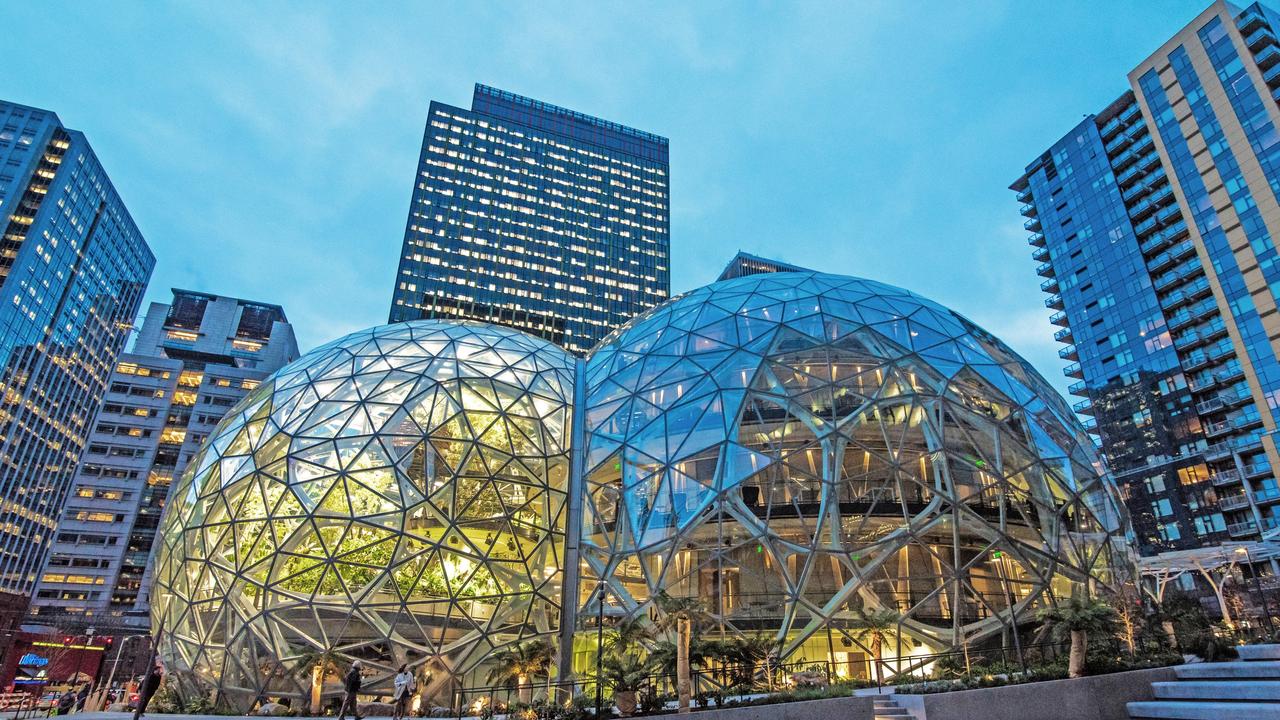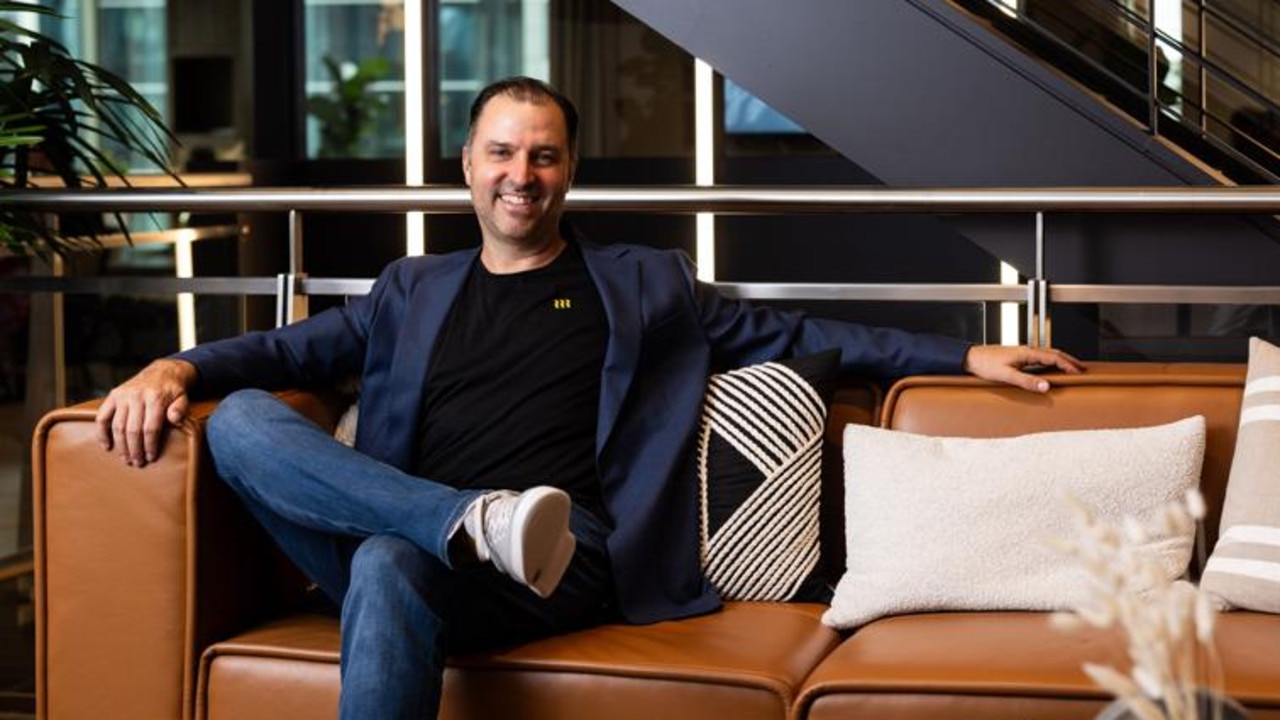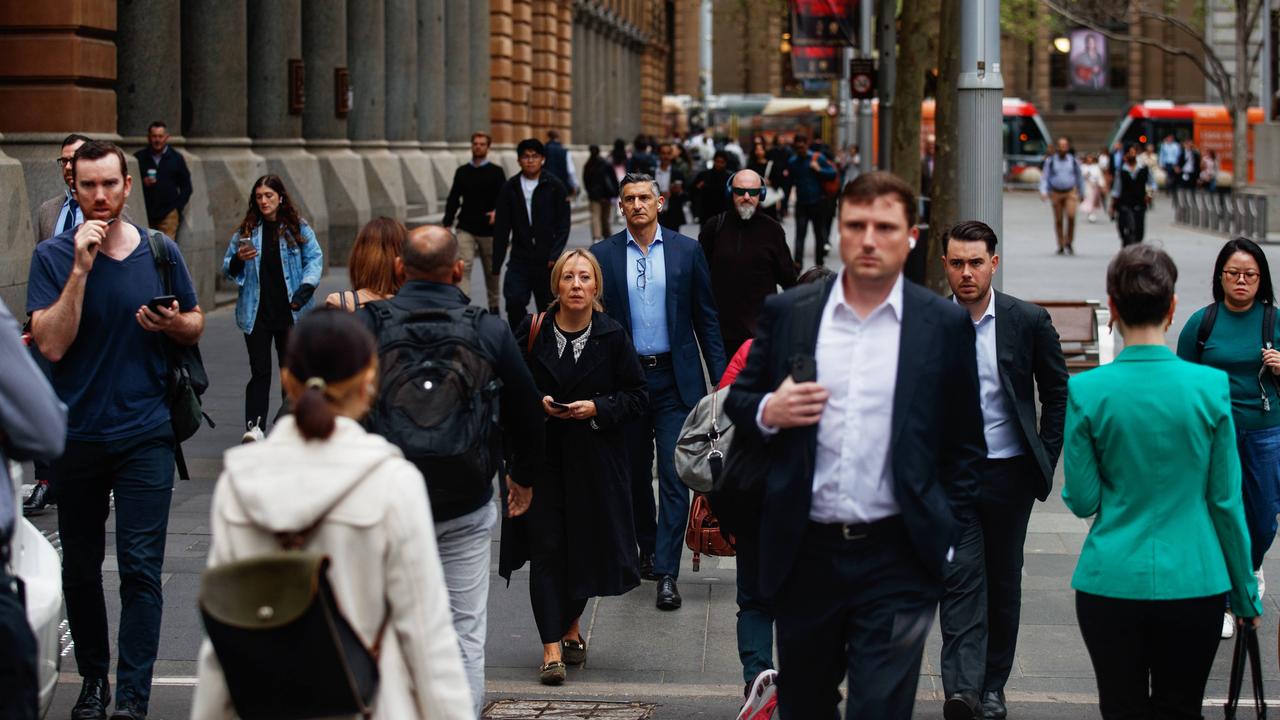‘Pendulum is swinging’: End to WFH on horizon for Aussies
Alarming data has revealed a sharp trend on what’s happening with WFH in Australia.
The tide appears to be turning for Aussie workers as bosses look to follow the lead of major companies by mandating a full-time return to the office.
The remote work era brought on by the Covid-19 pandemic has slowly been eroded away in recent years, and employers look set to hit accelerate back to the old-normal in 2025.
In a note this week, Amazon boss Andy Jassy said all corporate staff would need to come back be into the office permanently from January to “strengthen our culture and teams”.
His missive was closely followed by Australian betting giant Tabcorp on Wednesday, with its executive team stating it was “resetting” the company.
“What this means is that all office-based team members should work in the office, with their team, every day of their working week,” the memo stated. “This is a really important step ... Having us together as a team, focused and driving towards our goals will deliver outcomes and success.”
Both companies said they would offer “flexible” work arrangements depending on circumstances.

Data from several recent surveys of bosses and employees reveals the attitude towards flexible work has been rapidly changing in Australia.
Matt Loop, Vice President and Head of Asia at HR management software company Rippling, informed news.com.au that there are numerous intricacies concerning workplace flexibility.
“There’s various motivations that may influence business leaders to enforce return-to-office mandates: from boosting productivity to encouraging better team collaboration, or maximising office investment, to name a few. However, this shift shouldn’t be seen as a reversal of flexibility, but as an opportunity to redefine it,” he said.
(flexibility is) about creating an environment that adapts to how work gets done and how teams collaborate.
“There are many forms of workplace flexibility that go beyond WFH. For instance, businesses are offering ‘work-from-anywhere’ days, staggered schedules, or flexible hours to accommodate different needs.”
Mr. Loop explained that analysis showed 62 per cent of Australian business leaders support a mandatory return to the office for increased productivity, while 67 per cent also back work-from-anywhere policies.

“This suggests that many business leaders are open to flexible arrangements, while also seeking more in-office attendance from their employees to drive certain outcomes,” he explained.
“Ultimately, the conversation is not about choosing between WFH or WFO – it’s about creating a work environment that balances organisational needs with employee wellbeing. “Even the most ardent return-to-office advocates should acknowledge that burnout is more detrimental to productivity than working from home.
“We’re not seeing the end of the WFH era, but rather a deeper exploration of what true flexibility means in the future of work.”
Recruiting company Robert Half in June released a study showing the number of Aussie workers who must attend the office five days per week (39 per cent) doubled between 2023 (19 per cent) and 2024.
“The pendulum is swinging back to pre-pandemic levels where working-from-home was an anomaly rather than an expectation,” Andrew Brushfield, director at Robert Half, said.
“Staff are attending the office more than they have since the pandemic as many employers have taken the opportunity of a job market with less candidate leverage to request their employees to come back to the office.”

A survey of major companies and more than 1300 chief executives in 11 countries by KPMG this year found 83 per cent of bosses expected a full return to the office in three years.
That was a notable increase from 64 per cent in 2023, and 87 per cent of respondents said they would reward employees who come into the office with favourable assignments, raises or promotions.
“This year’s findings highlight a widening gap between the expectations of CEOs and their employees,” KPMG’s global head of people Nhlamu Dlomu said.
“The world is changing at pace and the employee-value-proposition is changing with it.”
Recent research on 500 Aussie businesses by workforce management platform Rippling found 67 per cent endorse work-from-anywhere policies.
However, 24 per cent were looking to mandate office work from next year and 62 per cent believed it would have a positive impact on productivity.
Just under a third of bosses (29 per cent) said they were considering offering higher wages for office-based employees than remote workers.

Aussie tech company Atlassian this week snapped back at Amazon’s office mandate, saying it was “wilfully endorsing the old way as a solution to new problems”.
Annie Dean, head of Atlassian’s distributed work model Team Anywhere, said workers were “drowning” in so-called “fake work” in the office – activities that feel like work, but don’t create value for a business.
“They are lost in endless meetings and messages, and spending so much time trying to get the information they need and co-ordinating their work that they get very little actual work done,” Ms Dean said.
“Office attendance does not fix fake work. Rigorously adopted sets of working norms that increase co-ordination and improve communication and focus fix fake work.”
Atlassian chief executive Mike Cannon-Brookes has previously said bosses should hire people they trust to get their work done.
“If you hire a bunch of idiots and (people) who don’t want to do a job and they goof off, I mean, OK is that their problem or yours’?” he told The Australian.




